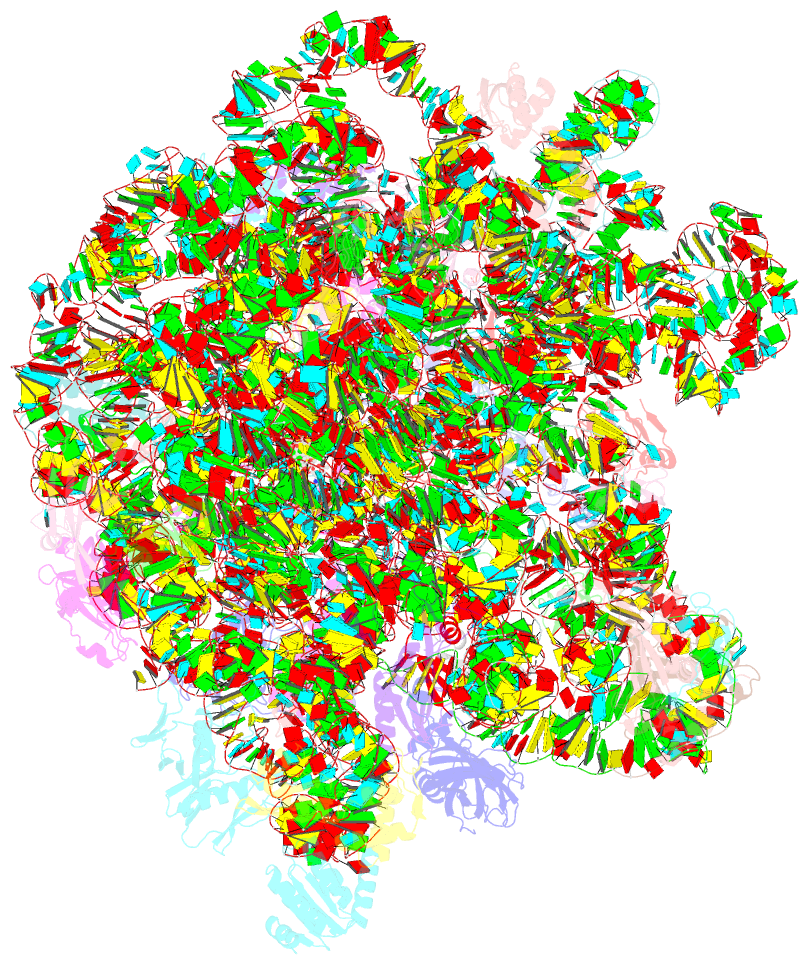Summary information and primary citation
- PDB-id
- 8xz3; SNAP-derived features in text and JSON formats;
DNAproDB
- Class
- ribosome
- Method
- cryo-EM (3.6 Å)
- Summary
- Mycobacterium smegmatis 50s ribosomal subunit with erythromycin
- Reference
- Srinivasan K, Banerjee A, Sengupta J (2024): "Cryo-EM structures reveal the molecular mechanism of HflX-mediated erythromycin resistance in mycobacteria." Structure, 32, 1443. doi: 10.1016/j.str.2024.06.016.
- Abstract
- Mycobacterial HflX confers resistance against macrolide antibiotics. However, the exact molecular mechanism is poorly understood. To gain further insights, we determined the cryo-EM structures of M. smegmatis (Msm) HflX-50S subunit and 50S subunit-erythromycin (ERY) complexes at a global resolution of approximately 3 Å. A conserved nucleotide A2286 at the gate of nascent peptide exit tunnel (NPET) adopts a swayed conformation in HflX-50S complex and interacts with a loop within the linker helical (LH) domain of MsmHflX that contains an additional 9 residues insertion. Interestingly, the swaying of this nucleotide, which is usually found in the non-swayed conformation, is induced by erythromycin binding. Furthermore, we observed that erythromycin decreases HflX's ribosome-dependent GTP hydrolysis, resulting in its enhanced binding and anti-association activity on the 50S subunit. Our findings reveal how mycobacterial HflX senses the presence of macrolides at the peptide tunnel entrance and confers antibiotic resistance in mycobacteria.





